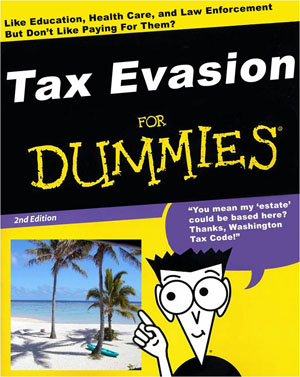
Recently, Boodle Hatfield, an internationally-focused U.K. law firm, put out its 2013 Wealth Report (See the report at http://s3-eu-west-1.amazonaws.com/www.globallegalpost.com/the-wealth-report/Wealth+Report+2013+V10+with+links.pdf) . In the report, Boodle Hatfield revealed statistics that confirm what most already know: wealthy individuals go to great lengths to consider ways, both old and new, to protect their money. At the heart of their report is the question of whether the recent domestic and international crackdowns intended to remedy the problems of tax evasion and tax avoidance will work.
For the record, tax evasion and tax avoidance are two very different things. Whereas tax evasion is an illegal act perpetrated by those with substantial assests who do not want to pay their lawfully assesed taxes, tax avoidence is a lawful act whereby the wealthy plan, according to existing domestic and international law, to reduce their tax burdens. In essence, the difference lies in the reality that the powers that be have not yet found a way to extend the long arm of their tax statutes to everyplace where money can be held. But, that does not mean that the authorities are not trying.
In fact, in recent years there has been a real push by the internatinal community to shut down the so-called “tax shelters.” Places like: Switzerland, the Cayman Islands, Luxembourg, and Singapore come to mind. Tax shelters have been referred to by those of modest wealth and governments with distain because there comes along with the name the notion that those utilizing the services provided by the shelters are, in reality, hiding their assests, like thieves would perhaps. And, there is no shortage of belief that those who utilize tax shelters are, in fact, thieves; theives who funnel money from the jurisdictions where they are lawfully subject to taxes in order to save for themselves the profits of their labors.
On the otherhand, there are those people who lawfully distribute their assets to holding companies and trusts in order to avoid taxation. Again, those people are tax avoiders, not tax evaders. It goes without saying then that there is a perpetual need for legal services in the field of taxation. In fact, professionals in the field say that a majority of their private clients are primarily concerned with the folowing three legal problems: tax planning, asset protection, and family business structuring and governance. (See abovementioed report with link provided). It seems then that the taxation problems of our generation may be here to stay.
Think about this: As the international community and domestice states rack their brains and spend millions on figuring out a solution to tax evasion and tax avoidance, the privately wealthy employ more and more high-dollar lawyers to figure out ways to side-step the official efforts of government. The result? Quagmire, Snafu, Stalemate. Perhaps, though, this stalemate has an economically paradoxical quality to it.
So long as the governments are pressuring the wealthy with proposed tax legislation and international tax evasion treaties (see OECD’s proposal given to the G20) so are the wealthy spending copiuos amounts of wealth to stave of the advanced. The result is that billions of dollars are pumped into the economy, resulting in increased wealth, competition that spurs new business, and spending to fuel the markets. Am I wrong about this? What’s your take? what do you think about my asserted difference between tax evasion and tax avoidance? How should the wealthy be taxed internationally? Domestically?
Article Sources: Global Legal Post; Boodle Hatfield
Photo Source: Rosshunter.info
I think it should be left up to individual countries to choose the tax regime that works best for them. Countries trying to impose their tax schemes on others is ultimately a threat to national sovereignty. Although there might be pressure from the international community, the truth is places like Switzerland and Luxembourg will likely never change their tax structures. There is simply too much money flowing in to make them change course now.
If countries are upset about citizens hiding their money in tax shelters, their governments should ask themselves what they are doing to cause this type of behavior. If people feel taxes are too high or unreasonable, they will do everything they can to avoid them. This is an example of how high tax rates do not necessarily lead to higher tax revenue. If enough money flows out of a country due to unreasonable taxes, then tax revenue actually falls as tax rates rise. I do not think it is Switzerland or Luxembourg who should rethink their tax schemes, but rather, all the other countries who force their citizens to find creative ways around their excessive taxes. If taxes weren’t so high, maybe people wouldn’t mind paying them.